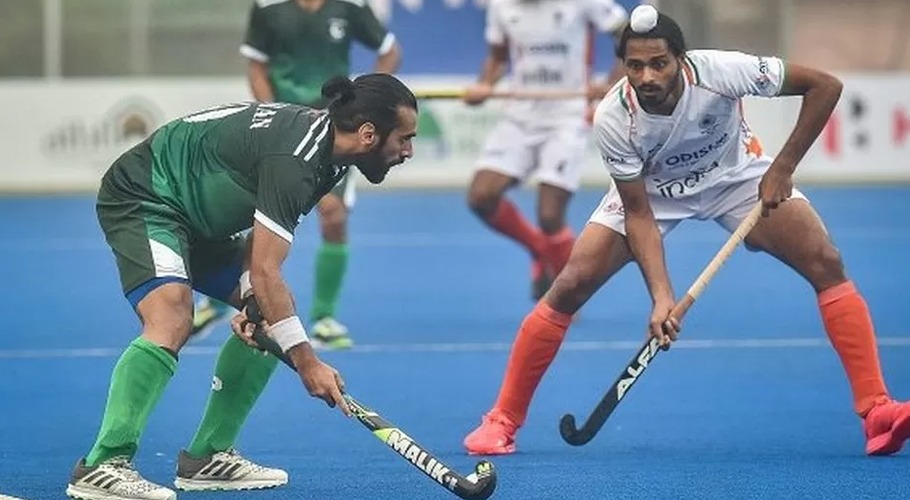As India and Pakistan face-off in yet another charged encounter this evening at the Asian Champions Trophy in Chennai, here is a look back at a classic India-Pakistan contest, the field hockey final of the 1964 Tokyo Olympics.
If hockey has any Gods, then they could not have scripted a better final line-up than India vs Pakistan. Here was a wounded champion striving to regain its lost title from the challenger. Pakistan had beaten India for the first time in Olympic history in Rome 1960, and the Indians had trained for four years to avenge it in 1964.
The off-field rivalry between the nations added an extra needle to the contest. In less than a year, both countries would be at war over the Rann of Kutch, and the tensions were already building. In modern terms, the only thing comparable to the emotion of this final was the incredibly tense India–Pakistan game in the cricket World Cup of 2003 against the backdrop of the Kargil war. In 1964, the war was still months away but hockey pride had to be restored. This was ‘war minus the shooting’.
Finally, India re-established its supremacy in world hockey by defeating Pakistan 1–0. Rene G. Frank, the secretary general of International Hockey Federation, has left a moving description of this final and the emotions that moved both teams.
“The India–Pakistan final which was played in a highly-charged emotional atmosphere was really extraordinary. It was one of the best and probably the best of the matches which I have had opportunity to attend,” he said. “Two fine teams of appreciably equal strength were each doing their utmost to win… If India finally proved a winner by a narrow margin, this was because in my personal opinion its players seemed to me to be inspired with a greater will than their opponents to carry off this victory which enabled them to regain the title of Olympic Champion which they had always held and which was wrested from them for the first time in 1960 by Pakistan.”
The performance of Laxman, India’s goalkeeper, stood out in the match. Most observers agreed that the result might have been different had it not been for his athletic defending. The celebrations matched the occasion. The victory was followed by ‘indescribable scenes of joy (which lasted) for many minutes’. That it meant much to a troubled India, ravaged by a war against China in 1962, was evident in the way the press back home wrote about the victory.
‘Eleven gallant men will import eleven pieces of gold into India next week and they will be allowed through the customs with smiles and congratulations,’ said one copy. ‘We never expected it to be an easy job but we worked for it most sincerely…We started shakily but as the tournament progressed we have gained strength and courage and we made it.’
The golden glow of this victory was felt around the country. A paan shop in Delhi distributed soft drinks for free soon after the Indians regained the gold. A taxi driver, when interviewed, suggested that he had been waiting for this moment for four years, and a number of college students declared that the victory would encourage many in the capital to take to hockey. The prime minister, Lal Bahadur Shastri, and President Radhakrishnan expressed delight and sent congratulatory cables to captain Charanjit Singh. The news of India’s victory was conveyed to Shastri when he was addressing a public meeting at Khatauli village in UP. He immediately reacted by giving his audience the news of the nation’s triumph in Tokyo.
It should be mentioned here that the huge crowd present in Tokyo for the final was a model sporting audience. To start with, the average spectator did not take sides. Before the start of the game, Pakistani flags were distributed free in the students’ gallery. Though they were briefed to support Pakistan, they mistakenly started shouting ‘Indo, Indo’. When they realized that they were waving Pakistani flags, they started rooting for Pakistan.
Chennai, which is known for being a sporting audience, will be on trial tonight. During the 1999 Test match between India and Pakistan, the Chennai crowd was brilliant, a fact still remembered by Pakistan captain Wasim Akram. While it will be all India tonight, the crowd will be on test to ensure that tempers remain within control, and that players from both teams are encouraged to produce an exhibition of high-class hockey.




